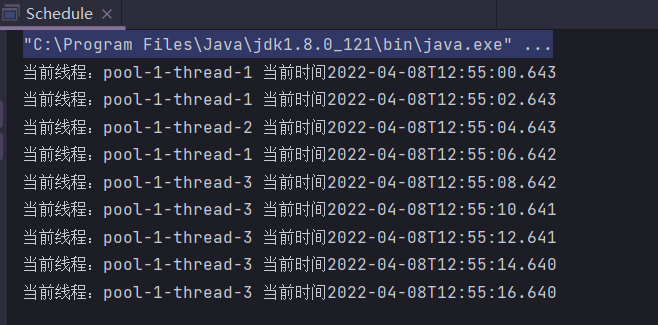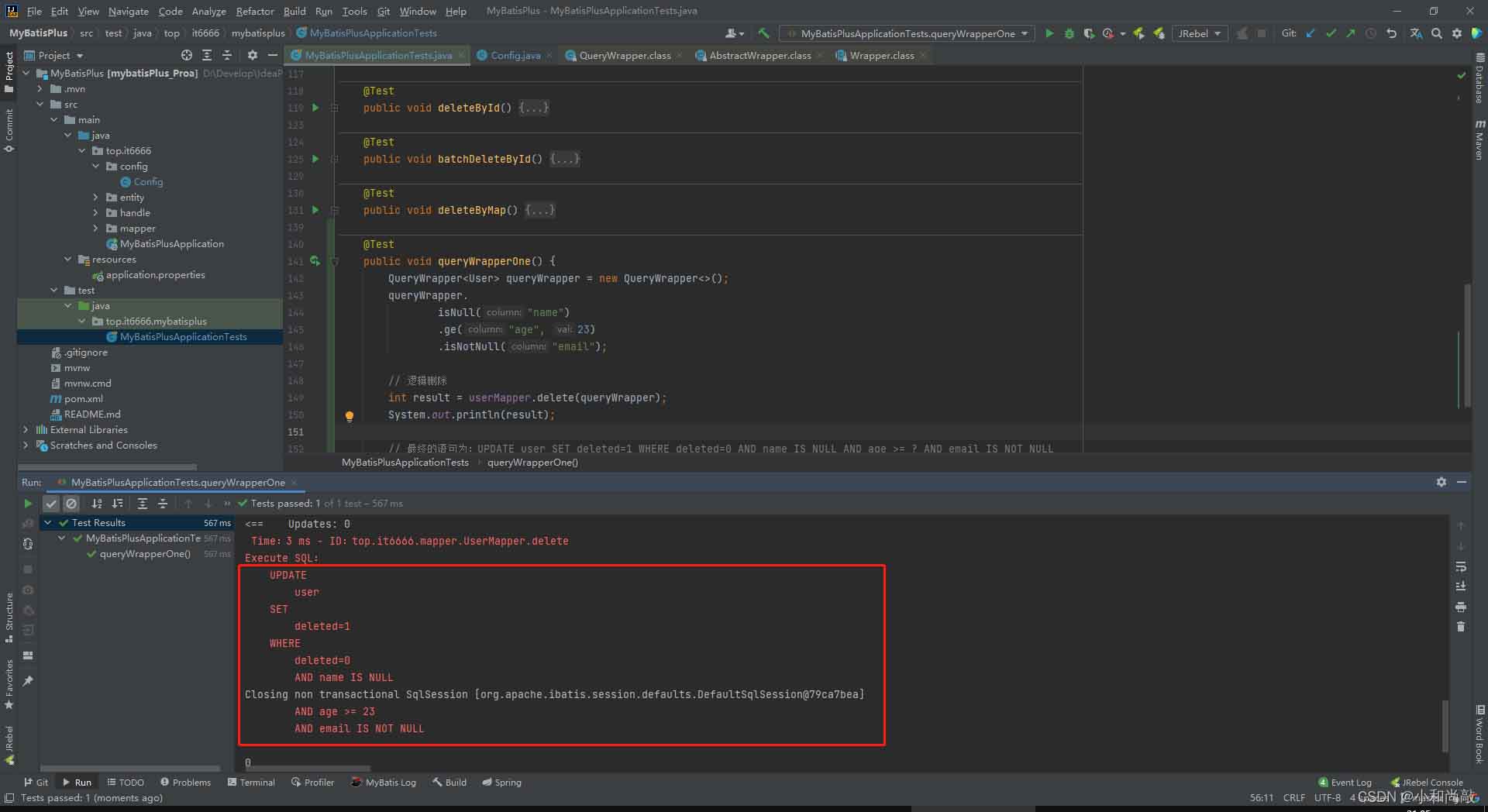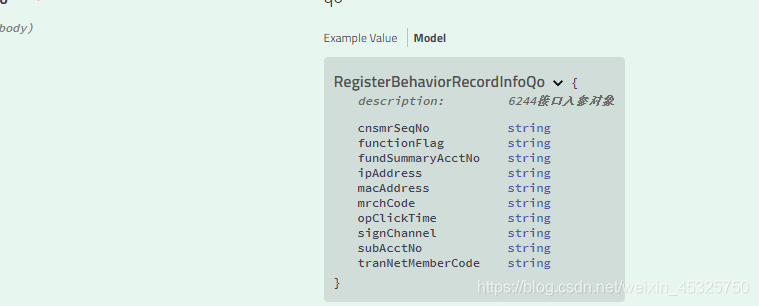SpringBoot是Spring开源组织下的子项目,是Spring组件一站式解决方案,主要是简化了使用Spring的难度,简省了繁重的配置,提供了各种启动器,开发者能快速上手,这篇文章主要给大家介绍了关于SpringBoot启动流程知识点的相关资料,需要的朋友可以参考下
一、Spring Boot 工程结构
下载Spring Boot工程源码, 下载地址
模块代码结构:
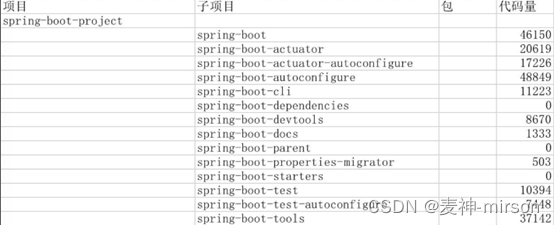
比较重要的是Spring-boot、Spring-boot-autoconfigure以及Spring-boot-starters等组件。
工程模块介绍
spring-boot
spring boot框架核心插件,对其他模块提供主要支持。内部包含所熟知的SpringApplication类, 提供应用程序入口, 内嵌支持Tomcat、Jetty和Undertow等容器。
spring-boot-actuator
主要用于管理和监控应用, 支持http、jmx、ssh、telnet等连接管理方式。
包含审计、健康状态、数据采集等功能。
spring-boot-actuator-autoconfigure
spring-boot-actuator的扩展、为其提供自动化配置功能。
spring-boot-autoconfigure
实现spring-boot工程的自动化配置, 我们常用的@EnableAutoConfiguration标注,就是通过此工程实现,
触发Spring上下文的自动装配。 设计目的是减少开发者的对bean及应用组件的管理配置,专注自己的实现。
spring-boot-cli
提供Spring项目相关的命令行功能,
安装CLI相关工具。即可通过spring run hello.groovy
直接运行Groovy脚本, 不过过多的繁琐配置, 开发人员只需关注业务逻辑。
spring-boot-dependencies
Spring Boot项目的maven依赖管理工程, 定义管理各组件的版本号,
内部没有具体代码实现。
spring-boot-devtools
Spring Boot的开发工具,比如经常调试程序,使用该插件可以支持热部署,
不需反复重启, 提高开发效率。
spring-boot-docs
Spring Boot的文档配置工程,设置文档格式、样式、布局等。
spring-boot-parent
Spring Boot的父级工程, 没有代码实现, 主要通过dependencyManagement管理各子项目的maven组件依赖。
spring-boot-properties-migrator
Spring Boot的配置属性监察功能, 也就是通过监听器观察指定的属性KEY, 发生变化时,符合指定的匹配规则,将会触发监听事件, 执行日志或发送报告等。
spring-boot-starters
它是一个管理工程, 里面包含各种应用组件,例如我们常用的spring-boot-starter-web组件, 提供对web服务支持;spring-boot-starter-data-jdbc组件, 提供的jdbc数据源的封装使用。里面每个组件只存在一个pom文件, 引入第三方依赖, 这样能简化配置, 灵活管理, 保障服务工程的兼容性。
spring-boot-test
里面包含各种模块及标注, 帮助我们方便测试spring boot 应用程序。
spring-boot-test-autoconfigure
服务于spring-boot-test工程,提供自动化配置,便于集成使用。
spring-boot-tools
spring boot工程的管理工具, 比如ant和maven构建、文档配置工具等。
二、Spring Boot 启动流程
Spring Boot 的整体启动流程:
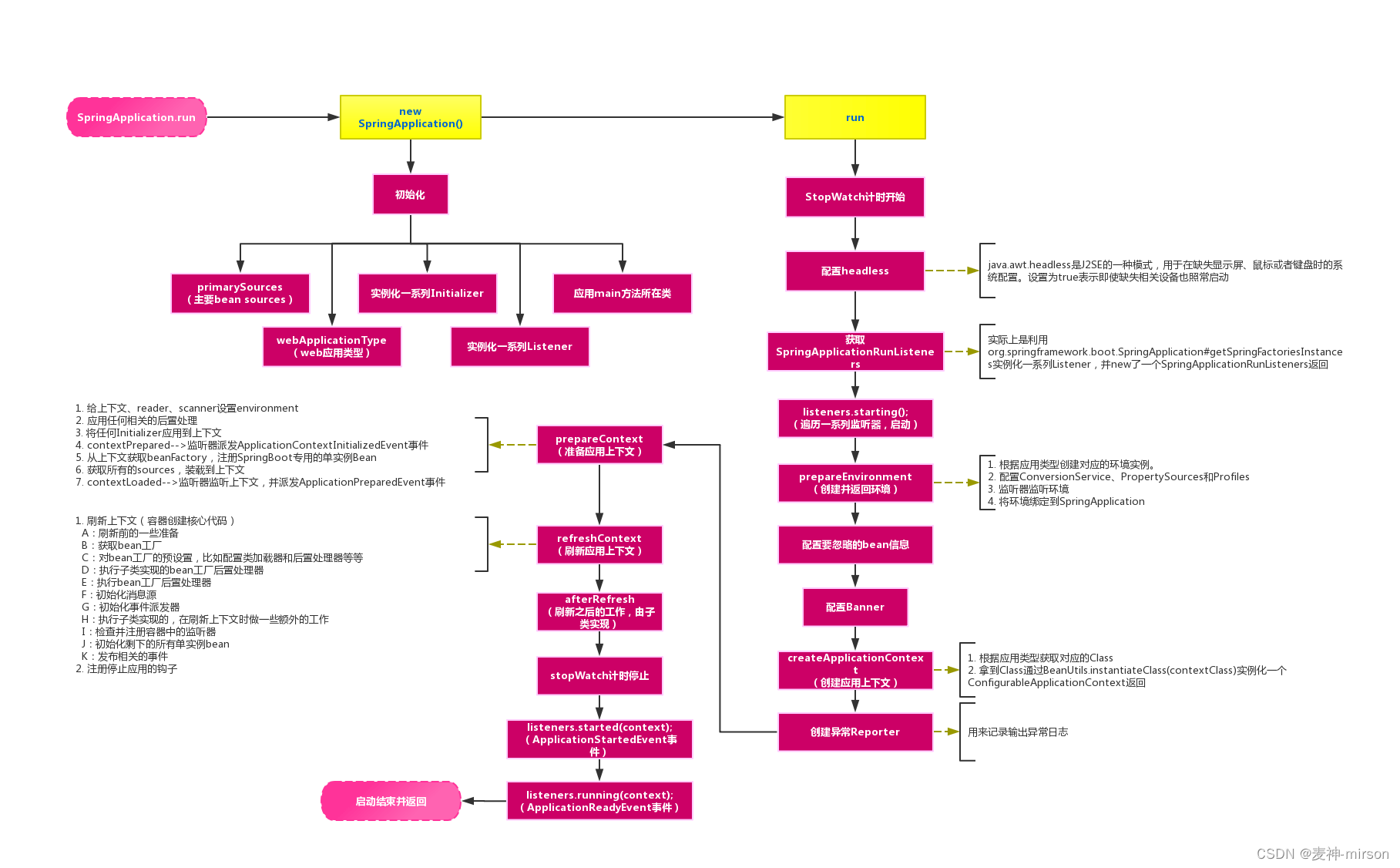
三、Spring Boot 启动流程源码剖析
1、创建一个Spring Boot 工程
创建spring-boot-startup工程作为源码研究。
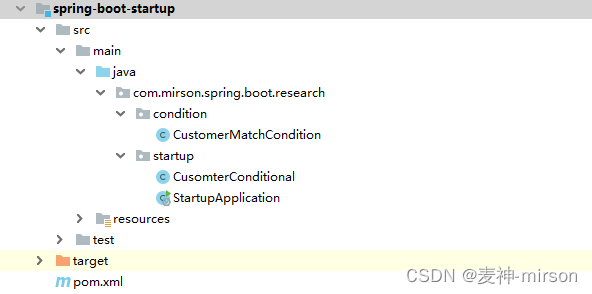
POM依赖:
<!-- Spring Boot Web 依赖组件 -->
<dependency>
<groupId>org.springframework.boot</groupId>
<artifactId>spring-boot-starter-web</artifactId>
</dependency>
2、SpringBootApplication启动入口
com.mirson.spring.boot.research.startup.ResearchApplication, 启动类代码:
@SpringBootApplication
@ComponentScan(basePackages = {"com.mirson"})
public class ResearchApplication {
public static void main(String[] args) {
SpringApplication.run(ResearchApplication.class, args);
}
}核心@SpringBootApplication注解
@Target(ElementType.TYPE) // 注解的适用范围,其中TYPE用于描述类、接口(包括包注解类型)或enum声明
@Retention(RetentionPolicy.RUNTIME) // 注解的生命周期,保留到class文件中(三个生命周期)
@Documented // 表明这个注解应该被javadoc记录
@Inherited // 子类可以继承该注解
@SpringBootConfiguration // 继承了Configuration,表示当前是注解类
@EnableAutoConfiguration // 开启springboot的注解功能,springboot的四大神器之一,其借助@import的帮助
@ComponentScan(excludeFilters = { // 扫描路径设置,excludeFilters为排除的过滤器,启动时不加载
@Filter(type = FilterType.CUSTOM, classes = TypeExcludeFilter.class),
@Filter(type = FilterType.CUSTOM, classes = AutoConfigurationExcludeFilter.class) })
public @interface SpringBootApplication {
...
}
SpringBootConfiguration
@Target(ElementType.TYPE)
@Retention(RetentionPolicy.RUNTIME)
@Documented
@Configuration
public @interface SpringBootConfiguration {
}打开其内部, 实质上就是@Configuration注解, 它是负责处理JavaConfig配置, 类似之前Spring在XML中定义的各种配置, 通过@Configuration注解, 会自动加载各种基于JavaConfig实现的配置。比如@Bean定义, @Autowire自动装配等。
EnableAutoConfiguration
Spring Boot 内部封装了很多组件, 比如异步任务, 缓存, 数据源等, EnableAutoConfiguration相当于是个总开关, 负责管理所有组件的自动化配置,它会去扫描当前路径下所有JavaConfig配置,并且通过AutoConfigurationImportSelector, 加载默认的自动化配置组件。
ComponentScan
ComponentScan功能其实是自动扫描并加载符合条件的组件, 比如@Service、@Repository、@Component等, 把它们加载到Spring Ioc容器中。Spring Boot 项目默认会扫描加载启动类所在路径下的所有JavaConfig配置, 通过ComponetScan指定package, 可以自定义路径扫描。
3、Spring Boot 初始化分析
从SpringApplication的run方法进入:

创建SpringApplication对象, 查看构造方法:
public SpringApplication(ResourceLoader resourceLoader, Class<?>... primarySources) {
// 设置资源加载器
this.resourceLoader = resourceLoader;
Assert.notNull(primarySources, "PrimarySources must not be null");
// 设置主资源加载器, 优先级更高
this.primarySources = new LinkedHashSet<>(Arrays.asList(primarySources));
// 应用类型推断处理, 标识应用服务是REACTIVE模式或SERVLET类型
this.webApplicationType = WebApplicationType.deduceFromClasspath();
// 设置初始化加载器,默认有6个, 作用是读取spring.factories配置, 每个初始加载器实现ApplicationContextInitializer接口
setInitializers((Collection) getSpringFactoriesInstances(ApplicationContextInitializer.class));
// 设置监听器, 默认有10个, 包含配置文件, 日志, Classpath等监听器
setListeners((Collection) getSpringFactoriesInstances(ApplicationListener.class));
// 设置启动类信息
this.mainApplicationClass = deduceMainApplicationClass();
}
Initializers初始化加载器

listeners监听器
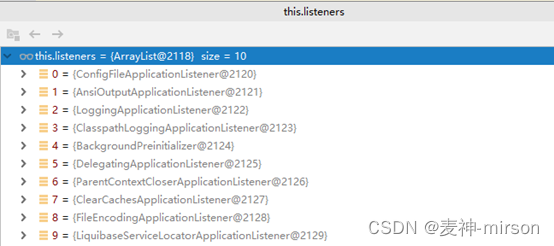
4、Spring Boot 启动深入分析
查看SpringApplication的run方法:
public ConfigurableApplicationContext run(String... args) {
// ① 创建计时器
StopWatch stopWatch = new StopWatch();
// 计时器开始统计
stopWatch.start();
// ② 定义配置型上下文, 除了具备ApplicationContex, 还拥有生命周期和流属性
ConfigurableApplicationContext context = null;
// ③ 定义异常记录报告
Collection<SpringBootExceptionReporter> exceptionReporters = new ArrayList<>();
// ④ 识别是否Headless模式, 该模式下,系统没有显示设备、键盘或鼠标
configureHeadlessProperty();
// ⑤ 获取所有Spring Boot 内置监听器
SpringApplicationRunListeners listeners = getRunListeners(args);
// 启动所有监听器
listeners.starting();
try {
// ⑥ 设置服务启动时接收的参数
ApplicationArguments applicationArguments = new DefaultApplicationArguments(args);
// 设置环境变量信息, 为监听器和ConfigurationPropertySources初始环境变量
ConfigurableEnvironment environment = prepareEnvironment(listeners, applicationArguments);
// ⑦ 忽略环境变量中配置的BEAN信息
configureIgnoreBeanInfo(environment);
// ⑧ 控制台打印Banner条, 可以自定义图片背景等
Banner printedBanner = printBanner(environment);
// ⑨ 创建上下文, 根据不同模式进行创建(SERVLET、REACTIVE)
context = createApplicationContext();
// ⑩ 获取Spring Factory加载时的异常报告
exceptionReporters = getSpringFactoriesInstances(SpringBootExceptionReporter.class,
new Class[] { ConfigurableApplicationContext.class }, context);
// ⑪ Spring上下文加载预处理
prepareContext(context, environment, listeners, applicationArguments, printedBanner);
// ⑫ Spring 上下文加载处理
refreshContext(context);
// ⑬ Spring 上下文加载完毕的后置处理, 内部暂为空实现
afterRefresh(context, applicationArguments);
// 停止时间计时器
stopWatch.stop();
if (this.logStartupInfo) {
new StartupInfoLogger(this.mainApplicationClass).logStarted(getApplicationLog(), stopWatch);
}
// ⑭ 启动监听器
listeners.started(context);
// ⑮ Spring Boot 容器启动完毕后, 调用ApplicationRunner的run方法, 处理自定义逻辑
callRunners(context, applicationArguments);
}
catch (Throwable ex) {
handleRunFailure(context, ex, exceptionReporters, listeners);
throw new IllegalStateException(ex);
}
try {
// 执行监听器
listeners.running(context);
}
catch (Throwable ex) {
handleRunFailure(context, ex, exceptionReporters, null);
throw new IllegalStateException(ex);
}
return context;
}① 创建StopWatch,Spring 提供的计时器,统计Spring Boot应用启动时长信息。
② 定义Spring上下文, 并下面第九处执行赋值。
③ 定义异常报告集合, 收集Spring Factory的初始化异常信息。
④ 配置headless信息, 该模式下,系统没有显示设备、键盘或鼠标。
⑤ 获取启动监听器,为一个集合,可以包含多个监听, 实现SpringApplicationRunListener接口,
该接口定义了容器启动的完整生命周期, 如启动、运行、环境准备、上下文准备、加载等。EventPublishingRunListener就是一个具体实现,
将SpringApplicationRunListener接口监听到的事件, 转化为SpringApplicationEvent事件, 注册并广播到所有监听器下面。
⑥ 服务配置处理,创建applicationArguments, 为应用的命令行参数, 启动程序时可以指定, 比如—debug等; prepareEnvrionment根据参数加载属性配置, 包含自定义的属性配置,像我们常见的application.yml都会加载进去, 默认会加载7个类型的配置到envrionment中。

⑦ configureIgnoreBeanInfo作用是配置是否忽略beaninfo处理, 默认是为true,会自动忽略不检索加载工程中的beaninfo类信息。
⑧ printBanner打印Spring Boot启动的Banner条, 通过bannerMode属性控制是否打印,内部有getImageBanner和getTextBanner实现, 可以支持图像与文本。
⑨ 容器创建, 通过createApplicationContext方法创建Spring容器, 会根据应用类型, 加载不同上下文处理类。Web Servlet类型会加载AnnotationConfigServletWebServerApplicationContext; Reactive类型会 加载AnnotationConfigReactiveWebServerApplicationContext。都是继承ServletWebServerApplicationContext类, 实现ConfigurableWebApplicationContext接口。 在不指 定应用类型的i情况下,默认通过AnnotationConfigApplicationContext类处理上下文,该类是继承GenericApplicationContext,实现ConfigurableApplicationContext接口。
⑩ 初始化exceptionReports集合, 通过SpringFactory加载,
内置有19个异常分析器, 常见的BeanDefinition定义错误、NoUnique唯一性约束、PortInUse端口占用等异常都是通过这些分析器处理抛出。
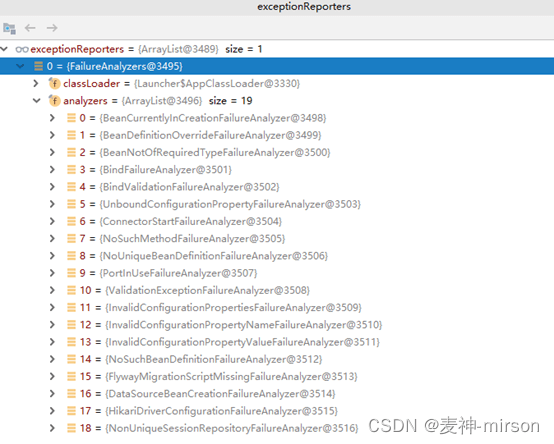
⑪上下文加载预处理,prepareContext方法内部实现:

设置context的environment环境配置属性,通过applyInitializer初始化ApplicationContextInitializer。通知监听器告诉上下文预处理工作完成。 接下来创建所熟知的beanFactory容器管理工厂, 加载BeanDefinition, 最后通知监听器,加载完成。
⑫ 刷新启动Spring容器, 调用refreshConext方法。深入内部,可以看到核心处理流程:
@Override
public void refresh() throws BeansException, IllegalStateException {
// 设置同步锁, 防止启动关闭造成的资源争抢
synchronized (this.startupShutdownMonitor) {
// Spring 上下文预加载处理
prepareRefresh();
// 刷新并返回bean工厂信息
ConfigurableListableBeanFactory beanFactory = obtainFreshBeanFactory();
// 预加载bean工厂信息, 如设定classloader加载器, 接口依赖等。
prepareBeanFactory(beanFactory);
try {
// bean工厂处理, 设置上下文的BeanPostProcessor和ignoreDependencyInterface等信息
postProcessBeanFactory(beanFactory);
// 调用所有在BeanFactory中已注册的beanFactoryPostProcessor。beanFactoryPostProcessor 是BeanFactory的后置处理器, 对BeanDefinition对象修改,如我们在XML或标注配置的bean定义信息
invokeBeanFactoryPostProcessors(beanFactory);
// 通过委派机制注册Bean创建时的Bean Processors对象 。BeanPostProcessor是Bean后置处理器, 负责对Bean对象修改, 比如实现InitializingBean接口的Bean, 通过afterPropertiesSet方法设置修改
registerBeanPostProcessors(beanFactory);
// 初始化message source , 比如我们常见的国际化信息处理。
initMessageSource();
// 初始化事件监听器并进行广播。可以将ApplicationListener监听的事件发送至相应监听器做处理。
initApplicationEventMulticaster();
// 实现其他的指定Bean或容器处理, 比如GenericApplicationContext, 可以实现一些自定义UI或Theme。
onRefresh();
// 注册所有实现ApplicationListener接口的监听器, 广播处理相应事件。
registerListeners();
// 创建所有非懒加载方式定义单例类。
finishBeanFactoryInitialization(beanFactory);
// 完成容器的加载处理, 善后工作, 清除资源缓存, 发布完成事件等。
finishRefresh();
}
catch (BeansException ex) {
if (logger.isWarnEnabled()) {
logger.warn("Exception encountered during context initialization - " +
"cancelling refresh attempt: " + ex);
}
// 销毁bean信息
destroyBeans();
// 复位 'active'激活标志.
cancelRefresh(ex);
// Propagate exception to caller.
throw ex;
}
finally {
// 清除基本缓存信息, 比如方法属性声明缓存、标注缓存等。
resetCommonCaches();
}
}
}⑬ 为Spring 容器初始化的后置处理方法,预置功能,内部为空实现。
⑭ Spring容器启动完成后, 通知SpringApplicationListener监听数组,
触发容器加载完成started事件, 执行监听逻辑。
⑮ 再调用运行器, 检查ApplicationContext中有无定义,调用ApplicationRunner、CommandLineRunner接口的run方法。
最后, 调用所有定义的SpringApplicationListener监听器,触发容器正常运行Running事件, 执行监听逻辑。
四、总结
Spring Boot 能够极为简化的开发与配置, 从启动流程的研究分析, Spring Boot 做了大量的封装与自动化处理, 通过扫描Spring Factory 能够加载各种自动化组件, 同时内置了监听器与各种事件, 以及ApplicationRunner启动器, 具有较强的灵活性与扩展性, Spring Boot 内部封装简洁, 逻辑清晰,没有过多的冗余代码, 能够起到很好的借鉴学习作用。
到此这篇关于Spring Boot超详细分析启动流程的文章就介绍到这了,更多相关Spring Boot启动流程内容请搜索编程学习网以前的文章希望大家以后多多支持编程学习网!
本文标题为:Spring Boot超详细分析启动流程


基础教程推荐
- springboot下使用shiro自定义filter的个人经验分享 2024-02-27
- 运用El表达式截取字符串/获取list的长度实例 2023-08-01
- 是否适合从javabean类更新数据库? 2023-11-04
- 使用Java和WebSocket实现网页聊天室实例代码 2024-02-25
- 深入理解约瑟夫环的数学优化方法 2024-03-07
- Java+mysql实现学籍管理系统 2023-03-16
- Java中EnvironmentAware 接口的作用 2023-01-23
- JSP 动态树的实现 2023-12-17
- JavaWeb 实现验证码功能(demo) 2024-04-14
- Java编写实现窗体程序显示日历 2023-01-02









